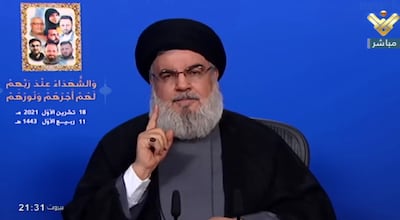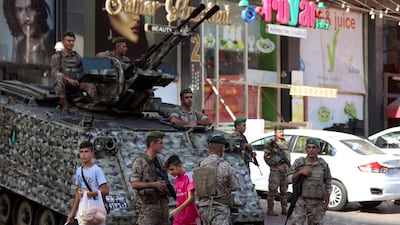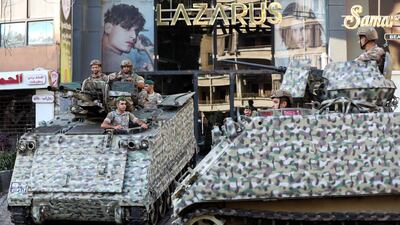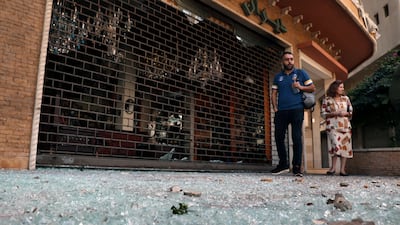Hezbollah leader Hassan Nasrallah accused his Christian enemies, the Lebanese Forces, of trying to stoke a new civil war in the country.
The accusation was in his first public comments since seven people were killed in armed clashes in Beirut last week.
“The real programme of the Lebanese Forces is civil war that will lead to demographic change,” Mr Nasrallah said.
He said that Thursday's violence represented a “dangerous and critical new stage” for the country.
In a fiery speech lasting about two hours, he took aim at Lebanese Forces leader Samir Geagea, claiming “since he got out of prison, he has been searching for enemies".
Mr Nasrallah was referring to the 11 years Mr Geagea served in jail for crimes committed during the civil war.
Mr Nasrallah claimed his group had 100,000 armed fighters and warned Mr Geagea: “Don't miscalculate. Sit quietly and get your act together.”
He insisted that the Iran-backed group had “never been stronger".
Seven people, all Shiite, were killed in armed clashes on Thursday, after unknown gunmen opened fire on a demonstration being held by Hezbollah and Amal supporters against Tarek Bitar, the judge leading an investigation into the Beirut port blast.
The clashes were the worst violence seen on the streets of Beirut in more than a decade.
Hezbollah and Amal, the country's two most powerful Shiite groups, accused fighters from the Lebanese Forces of opening fire on their supporters, which Mr Nasrallah reinforced in his speech.
The Lebanese Forces have denied the accusations.
Mr Nasrallah repeatedly tried to portray his party as a friend of the country's Christian community.
“We do not represent any threat or danger to you. Rather, the danger to you is Lebanese Forces and its leader,” he said.
He called for a quick investigation into Thursday's violence, adding that “those responsible should be held to account.”

Mr Nasrallah used his last televised speech to publicly rebuke Mr Bitar, prompting the Hezbollah-backed march on Thursday.
Mr Bitar has faced condemnation from much of Lebanon's political class, including Hezbollah, as he called in several high-profile politicians for questioning over the summer.
The criticism appeared to reach new levels when he issued an arrest warrant for Ali Khalil, a former finance minister, after he failed to appear for questioning.











